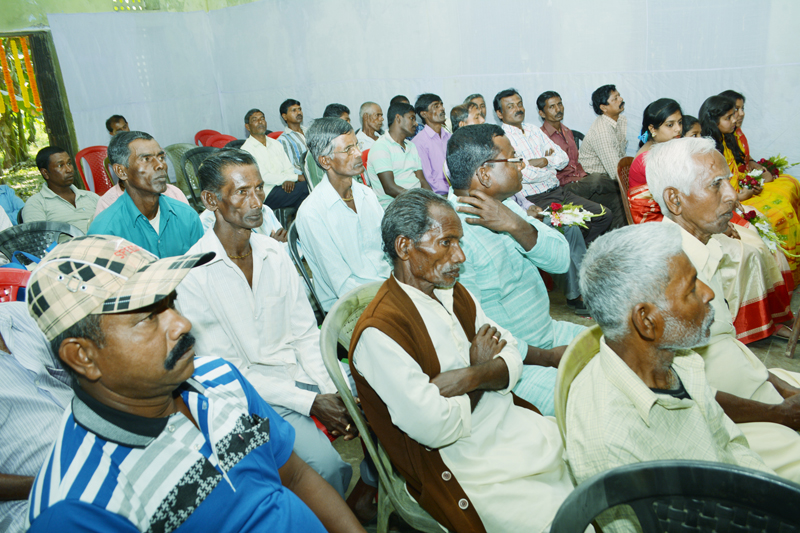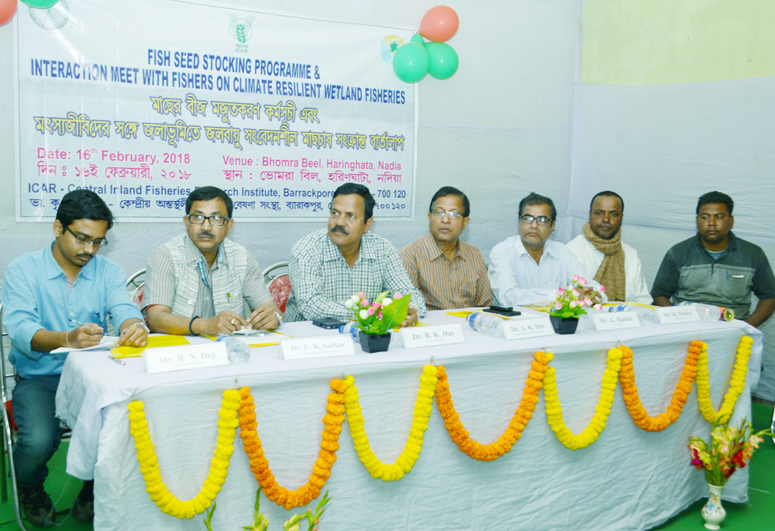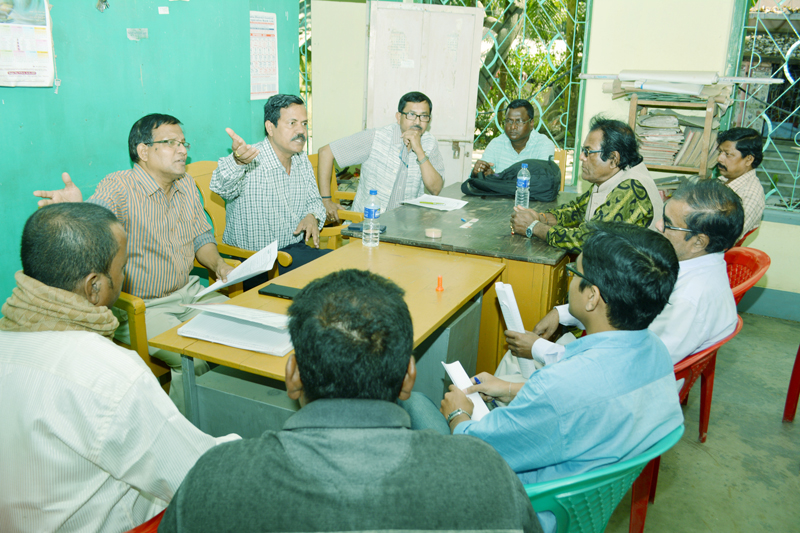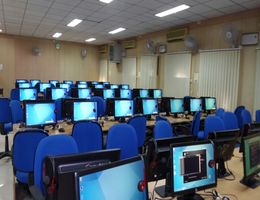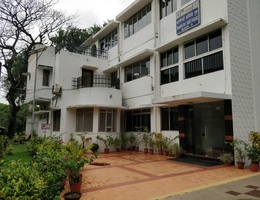Overview
Publications
Recruitment
Intranet
Glimpse of CIFRI
India is endowed with vast water resources under floodplain wetlands to the
tune of 0.554 million ha especially in the eastern and north eastern part of the
country. Though the wetlands have huge potential for increasing fish
production, these resources have not been adequately utilized due to several
factors. During the last century, the country has witnessed considerable change
in climate with increase in temperature in the range of 0.6°C, change in
precipitation patterns and occurrence of extreme events. The impact of climatic
variability on wetland fisheries includes changes in habitat, aquatic biodiversity,
fish yield, aquatic weed proliferation, dominance of exotic species etc. which
has negatively impacted the livelihood of fishers. In this background, a novel
programme was launched on developing model wetland for livelihood security
and restoration of indigenous fishes under NICRA project on 16.02.2017 at
Bhomra Beel, Haringhata, West Bengal. The programme was graced by Dr. B.
K. Das, Director ICAR-CIFRI, Barrackpore in presence of state fishery official,
fishers and other stakeholders.
The programme started with welcome address by Dr. U. K. Sarkar, HoD, Reservoir and Wetland Fisheries Division, ICAR-CIFRI and PI, NICRA. In his welcome note, he highlighted the importance of the climate smart strategies for enhancement of wetland fisheries and indigenous fish conservation. He stated that through climate resilient technologies and adaptation strategies the fishers can cope up with adverse impact of climatic variability. Dr. Sarkar appreciated the enthusiasm and support provided by the state fisheries officials of the district.
In his address, Dr. B. K. Das, Director, ICAR-CIFRI motivated the fishers to join hands and to adopt scientific management strategies and technologies to restore the ecosystem as well to enhance the income from the wetland. He also stressed on conservation and gradual restoration of high value small indigenous fish species in the wetlands through innovative approaches and forming social groups comprising fisherwomen. He further suggested for creating value chain for local level processing and marketing of fish to ensure higher returns. Director, ICAR-CIFRI also inaugurated the Climate Resilient Pen Culture System in Bhomra Beel and released fish seed of IMCs, Puti, Folui, Singhi and Pabda, in the pens. The demonstration of the technology aims to serve as a model wetland for this region.
Dr. A. K. Das, Principal Scientist, ICAR-CIFRI emphasized on the importance of floodplain wetlands in enhancing farmers income by following integrated approaches. Mr. R.N. Dey FEO, Haringhata appreciated ICAR-CIFRI for the new initiatives for restoration of wetlands through sustainable management. Mr. Gour Haldar, Manager, Bhomra Fishermen’s Cooperative Society Ltd. (BFCS) expressed his deep interest and support of the BFCS ltd in implementing the joint venture. He also pointed out several issues related to wetland fisheries development to which the scientists of CIFRI gave suggestions. On the occasion, a fishers-scientist interaction meet was also organized at Bhomra Beel, Nadia, West Bengal.
On this juncture ICAR-CIFRI signed a MoU with BFCS Ltd. for pen culture demonstration in Bhomra beel. The programme was attended by more than 50 fishers of the co-operative society and scientists and other staffs and members of NICRA project, ICAR-CIFRI.
The programme started with welcome address by Dr. U. K. Sarkar, HoD, Reservoir and Wetland Fisheries Division, ICAR-CIFRI and PI, NICRA. In his welcome note, he highlighted the importance of the climate smart strategies for enhancement of wetland fisheries and indigenous fish conservation. He stated that through climate resilient technologies and adaptation strategies the fishers can cope up with adverse impact of climatic variability. Dr. Sarkar appreciated the enthusiasm and support provided by the state fisheries officials of the district.
In his address, Dr. B. K. Das, Director, ICAR-CIFRI motivated the fishers to join hands and to adopt scientific management strategies and technologies to restore the ecosystem as well to enhance the income from the wetland. He also stressed on conservation and gradual restoration of high value small indigenous fish species in the wetlands through innovative approaches and forming social groups comprising fisherwomen. He further suggested for creating value chain for local level processing and marketing of fish to ensure higher returns. Director, ICAR-CIFRI also inaugurated the Climate Resilient Pen Culture System in Bhomra Beel and released fish seed of IMCs, Puti, Folui, Singhi and Pabda, in the pens. The demonstration of the technology aims to serve as a model wetland for this region.
Dr. A. K. Das, Principal Scientist, ICAR-CIFRI emphasized on the importance of floodplain wetlands in enhancing farmers income by following integrated approaches. Mr. R.N. Dey FEO, Haringhata appreciated ICAR-CIFRI for the new initiatives for restoration of wetlands through sustainable management. Mr. Gour Haldar, Manager, Bhomra Fishermen’s Cooperative Society Ltd. (BFCS) expressed his deep interest and support of the BFCS ltd in implementing the joint venture. He also pointed out several issues related to wetland fisheries development to which the scientists of CIFRI gave suggestions. On the occasion, a fishers-scientist interaction meet was also organized at Bhomra Beel, Nadia, West Bengal.
On this juncture ICAR-CIFRI signed a MoU with BFCS Ltd. for pen culture demonstration in Bhomra beel. The programme was attended by more than 50 fishers of the co-operative society and scientists and other staffs and members of NICRA project, ICAR-CIFRI.
